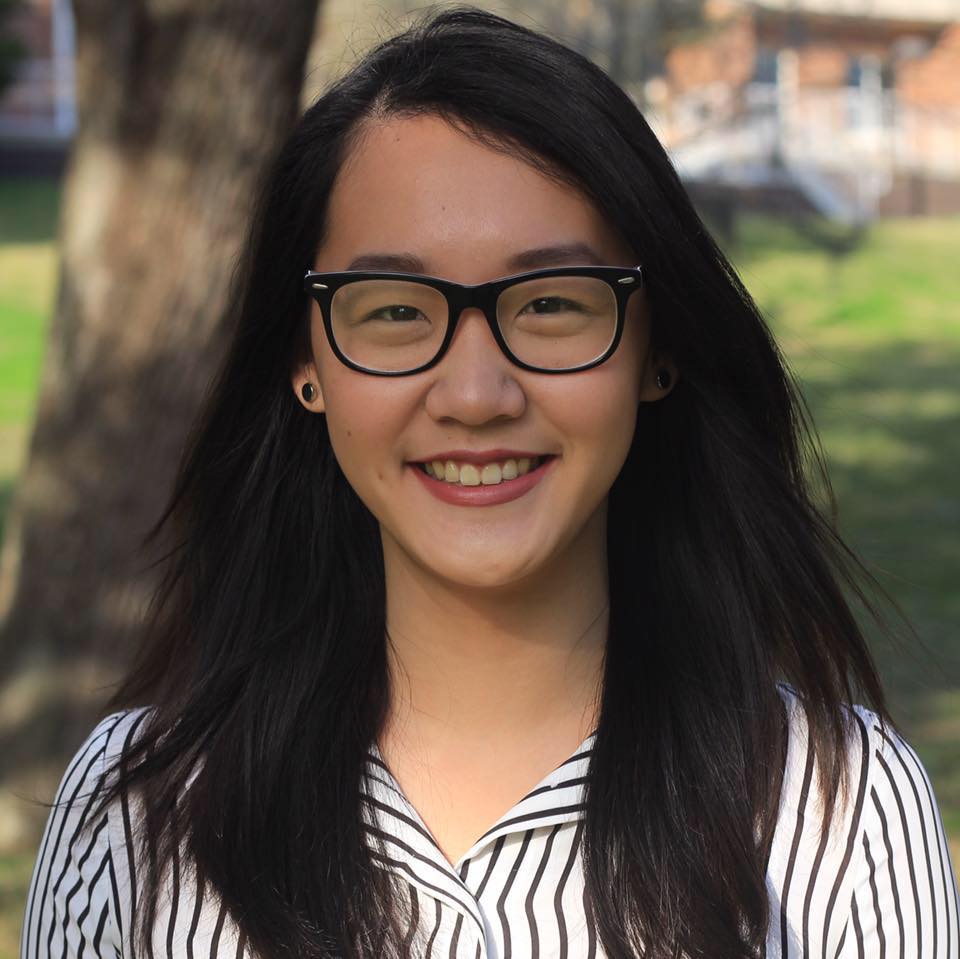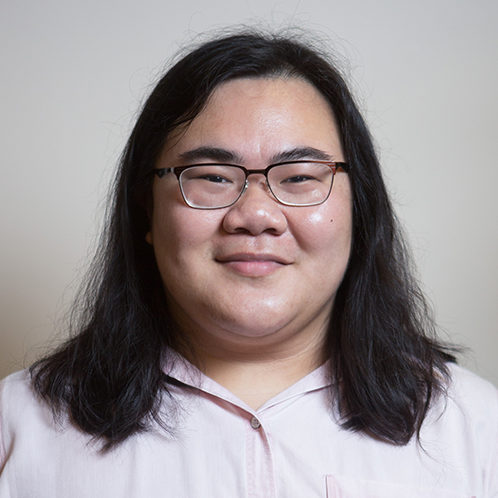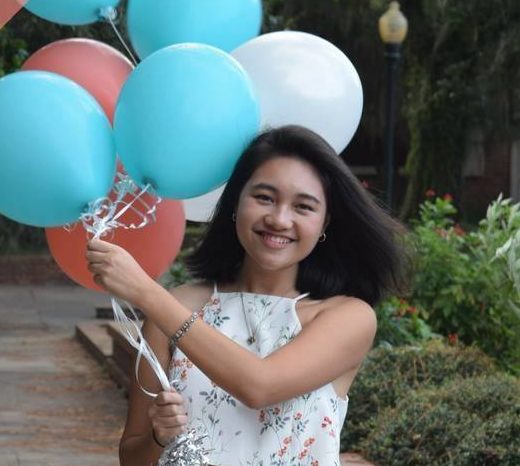
Bijal Desai is a third-year food and resources major at the University of Florida running for student body vice president. Desai has served as the president of VISA, the Volunteer for International Student Affairs, and is the founder of Gator Civitan Club, an advocacy club for people with disabilities.
What made you want to become involved in student government?
The last three years at UF, student politics was always just a gray area because there was always so much buzz around it. Really, when I came my freshman year, I got so involved with student organizations that I never really cared about student government (SG). And then when I came into VISA, which is the Volunteer for International Student Affairs, I realized the role that student government played because student government was basically the sponsor of all VISA events and allocated our finances, and I realized the role SG played on campus. So then, coming up to this year and building it up, I realized that VISA – it’s one of the largest organizations on campus, also actually the largest funded organization – I realized the platform I had as VISA president.
Over the last two years that I served in VISA, I heard so many different issues, concerns and suggestions for campus. And with Spencer coming last semester and different things happening throughout my academic career at UF, I realized that when I was offered to be on the executive ticket of Inspire, that I shouldn’t reject any opportunity to share the voice of my constituents and myself. I wanted to make sure that I could utilize my platform no matter what it may be, and that just happened to be student government.
I realized that VISA – it’s one of the largest organizations on campus, also actually the largest funded organization – I realized the platform I had as VISA president.
I never considered getting involved with student government until the Inspire Party was founded, which is 20 senators alone and is – and I love using this word – is the underdog. The Inspire Party truly is the underdog in the senate. With 20 senators, they were able to challenge the majority and do things like open a new liaison for the Multicultural and Diversity Affairs; they were able to pass a bill to increase voter awareness for student government elections and just seeing them do all this stuff in one semester was truly incredible. And the three pillars: transparency, inclusivity and accountability were surprisingly words and attributes that I try to put into my own leadership every day, and that’s why I got involved with student government. Inspire actually touched me; I actually recognized the need for Inspire Party to exist, the need to bring back a two-party system.
Is that why you chose to run with Inspire?
That is also why I chose to run with Inspire. They were just able to bring so many issues that I cared about, that I felt passionate about, to the forefront. It was just enlightening for me to see their platform; it was refreshing to see a different platform challenge the student body and just get out there.
Anything specific about the platform?
The thing that I saw in the fall was again with online voting – the last three years, we’re the only school in the SEC that doesn’t have online voting. Even Santa Fe College has online voting. And we’re a top 10 public university, so the amount of student voice that could be expressed through online voting would just be far more than what we have now. As well as their movement for free menstrual products on campus, stuff like that. That was all in their platform in the fall, and that was something that I truly felt was important especially for the organization that I represent. Fifteen out of 20 VISA presidents are all female. So, it’s just incredible to see their passion for all students.
Fifteen out of 20 VISA presidents are all female. So, it’s just incredible to see their passion for all students.
Have you ever felt like you’ve had to combat Asian American stereotypes?
All the time. I was actually born and raised in Cape Town, South Africa. I moved to the United States in 2004. So growing up at the end of apartheid, I was able to experience so many different perspectives on the color that I am. I was able to experience the aftereffects of segregation and the implications that colored people, but mainly whites, felt about the colored community. here was actually an instance in South Africa, when I was held at gunpoint in our family’s shop, they just beat my family down, and they took everything we had, and then I moved to the United States.
The first day I came to school in the United States, it was third grade, and I got a detention because I asked the teacher for a rubber and not an eraser. The difference is that a rubber in the western community actually means a condom, whereas in the commonwealth countries, a rubber means eraser. So that was just completely different for me. And then throughout my life, my dad franchises different Subways across southwest Florida, and there were so many customers that would say ‘Get out of our country. You’re brown, you don’t belong here.’ And when I moved to Gainesville, I thought it might be different. I thought that because there’s more Indians here, there’s so much more of an Asian demographic, there’s so many more black students here than where I’m from – because I’m from Naples, which is a heavily Republican town, I thought it’d be more progressive here. Last semester, I got a note on our apartment door – I live at Gainesville Place, and it said ‘Trump. Make America Great Again.’
Last semester, I got a note on our apartment door – I live at Gainesville Place, and it said ‘Trump. Make America Great Again.’
So the amount of stereotypes I’ve experienced – it really goes on and on. And I’m proud to say that I’m able to stand above it and ignore it because I know that I truly am able to fight through that especially given my platform. I’m able to represent different organizations and learn their perspectives and their internal conflicts, as well as the conflicts that relate or correspond to their demographics, so it’s eye-opening.
So, taking from those experiences, how will you work to create a space for marginalized individuals?
I am a huge fan of the current Multicultural and Diversity Affairs we have, although I do feel that there are some instances where they could work to represent more students. For example, there’s five Muslim organizations under VISA and MCDA [that] still has not come up with a safe space for Middle Eastern communities. We do have the Reflection Room in the Reitz, which is located on the third floor, and a lot of the members of Islam on campus or members of the corresponding countries for VISA, like Pakistani, Turkish, Bangladeshi – they all use the room for religious purposes. But there’s no proper space for them, and I feel like Islamophobia does exist. And as well as the APIA Affairs, the desi factor still is not there. That’s something I want to advocate for.
Is there anything else you’d like to do in general as student body vice president?
I think when student government officials earn their right of platform, they kind of just only focus on students on the main campus. As part of the Gator Nation, I want to be able to travel and represent students from across. So the students that are located on satellite campuses, on UF online, study abroad, I want to make sure they all feel like part of the Gator Nation. So that’s why I’m going to be a huge advocate for live streaming SG events and senate meetings, online voting, making sure they have more resources in their area.
But there’s no proper space for them, and I feel like Islamophobia does exist. And as well as the APIA Affairs, the desi factor still is not there. That’s something I want to advocate for.
For example, let’s say an engineering student is doing a different program at a different university, making sure that he still has the same resources and accessibility to UF materials as if he was here. Even when it comes to study abroad, I was at the engineering school talking a little about myself, and I told the engineering school that I want to make sure the engineering student has the enhanced ability to study abroad because right now, their curriculum is so condensed within their college on the main campus that they’re refrained going outside of UF.
I want to make sure that every Gator has the equal and accessible experiences for whatever they want to do. I want to make sure I can connect everyone, including transfer students. And one of the last things I want to do is to create an office or a cabinet for undocumented students. I’m actually a DACA student, so every day there is that constant fear where they didn’t want me to get involved.
But now I want to make sure that I use my platform for good, and I represent all students, including those that are undocumented. I want to create a cabinet and work with administration to create an office or liaison specifically for undocumented students. Within the 18 cabinets that a vice president has, if elected, I want to create two more cabinets – one for transfer students specifically and one for racial and social injustices, just so we can keep targeting that conversation on campus.
—
This interview has been edited and condensed for clarity.
See more of our Q&As with Asian American Students on UF’s Executive Ticket:
Stefan Sanguyo – Impact Treasurer Candidate
Shayli Patel – Challenge Vice President Candidate






